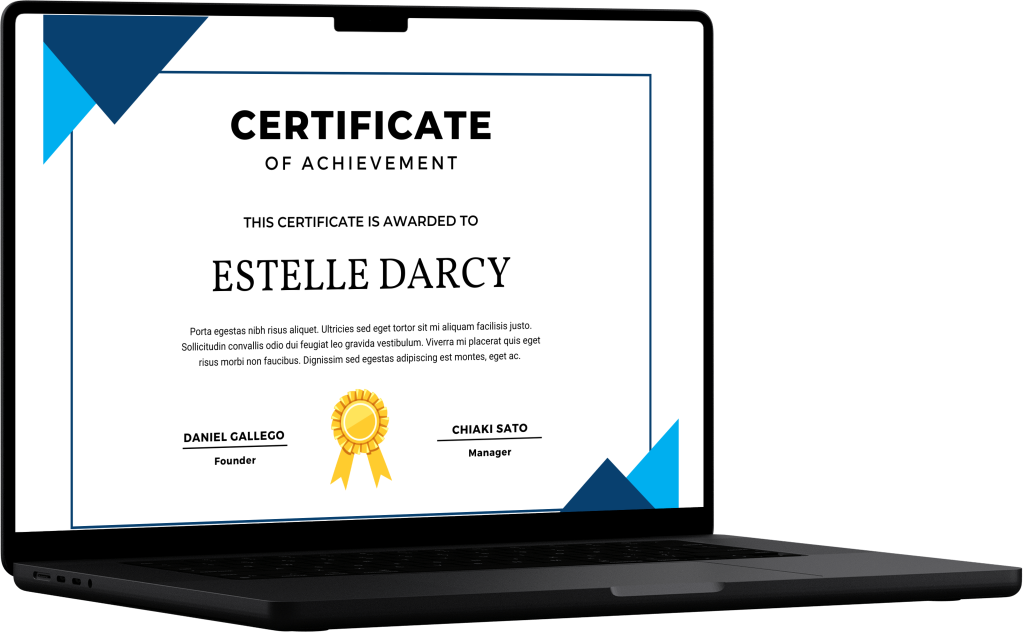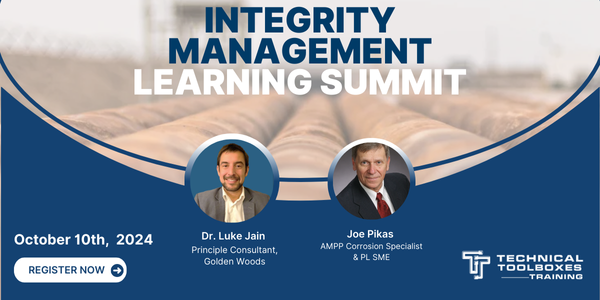October 3-4, 2023: What You Need to Know About In-Service Welding Design, Implementation, Inspection & Testing, Regulation & Compliance
-
Author: Matt Boring
-
Level: Advanced
-
Study time: 12 hours
Write your awesome label here.
Course overview
What is in service welding? What are the main types of welding and passes?
This training will cover these questions and address in-service welding onto gas and liquid pipelines under both typical and nontypical conditions. It describes the concerns, design implementation, inspection, and testing of in-service welds with particular emphasis on regulation/compliance review, recommended practices and case studies. In addition to the lecture portion, the course is designed to enable participants to successfully run PRCI Thermal Analysis Model for Hot Tap® Welding software and interpret the results.
This training will cover these questions and address in-service welding onto gas and liquid pipelines under both typical and nontypical conditions. It describes the concerns, design implementation, inspection, and testing of in-service welds with particular emphasis on regulation/compliance review, recommended practices and case studies. In addition to the lecture portion, the course is designed to enable participants to successfully run PRCI Thermal Analysis Model for Hot Tap® Welding software and interpret the results.
The first portion of the course provides participants with an understanding of the factors that contribute to burnthrough or cracking. Participants will also learn the highlights of various technical resources that supplement the PRCI Thermal Analysis Model for Hot Tap® Welding program to provide a more comprehensive body of technical information pertaining to welding onto operating pipelines.
Our live-virtual trainings are conducted in a real-time question and answer classroom format. You may ask questions or comment throughout either verbally or in writing.
START TIME: 9:00 a.m. (CDT)
END TIME: 3:30 p.m. (CDT)
Our live-virtual trainings are conducted in a real-time question and answer classroom format. You may ask questions or comment throughout either verbally or in writing.
START TIME: 9:00 a.m. (CDT)
END TIME: 3:30 p.m. (CDT)
PDH Certificate included upon successful completion

-
Course Outline
IntroductionArc Welding OverviewShielded Metal-Arc Welding (SMAW)Gas Metal Arc Welding (GMAW)Flux-Cored Arc Welding (FCAW)Gas Tungsten Arc Welding (GTAW)BurnthroughHydrogen CrackingIn-Service Welding ApplicationsDeveloping In-Service Welding ProceduresWhat the Applicable Codes and Standards Say About In-Service WeldingThings To Do Before You In-Service WeldThings To Do After You Perform An In-Service WeldLessons To Be Learned and Simplified Approach to In-Service WeldThe Role of PRCI Thermal Analysis Model for Hot Tap® Welding In Developing And Selecting Welding Procedures For Use On Pressurized Pipes -
-
Matt Boring
Principal Engineer, Welding Group Lead, at DNV
ABOUT Matt Boring
Matt Boring is a registered Professional Welding Engineer in the State of Ohio as well as an AWS Certified Welding Engineer and AWS Certified Welding Inspector a pipeline welding engineer who is primarily involved in new pipeline construction including engineering critical assessments (ECA) as well as pipeline rehabilitation including in-service welding or hot-tap welding.
Matt started his career with EWI where he was responsible for a wide range of welding research projects for the pipeline, offshore structures, pressure vessel, and nuclear industries. Mr. Boring joined Kiefner and Associates in 2012 where he continued his focus on welding research while expanding into the areas of code compliance and failure investigations of pipeline and associated components. More recently, he joined the Incident Investigation Group at DNV where he continues to support the pipeline industry by providing a range of consulting services ranging from new construction, fitness for service, pipeline rehabilitation, and integrity.
Throughout his career, Matt Boring has been heavily involved in oil and gas industry code development including membership and holding offices to several of the industry welding qualification codes. These memberships include being an API 1104 Committee voting member, ASME Section IX Committee member, ASME Section IX Sub-group member on welding qualifications, ASME PCC-2 Committee member, and ASME PCC-2 Repair and Testing Subcommittee member. Mr. Boring is currently the co-chair of API 1104 Annex B Sub-committee which oversees the API 1104 in-service welding requirements and the chair of the ASME PCC-2 Welded Repair Sub-group.

